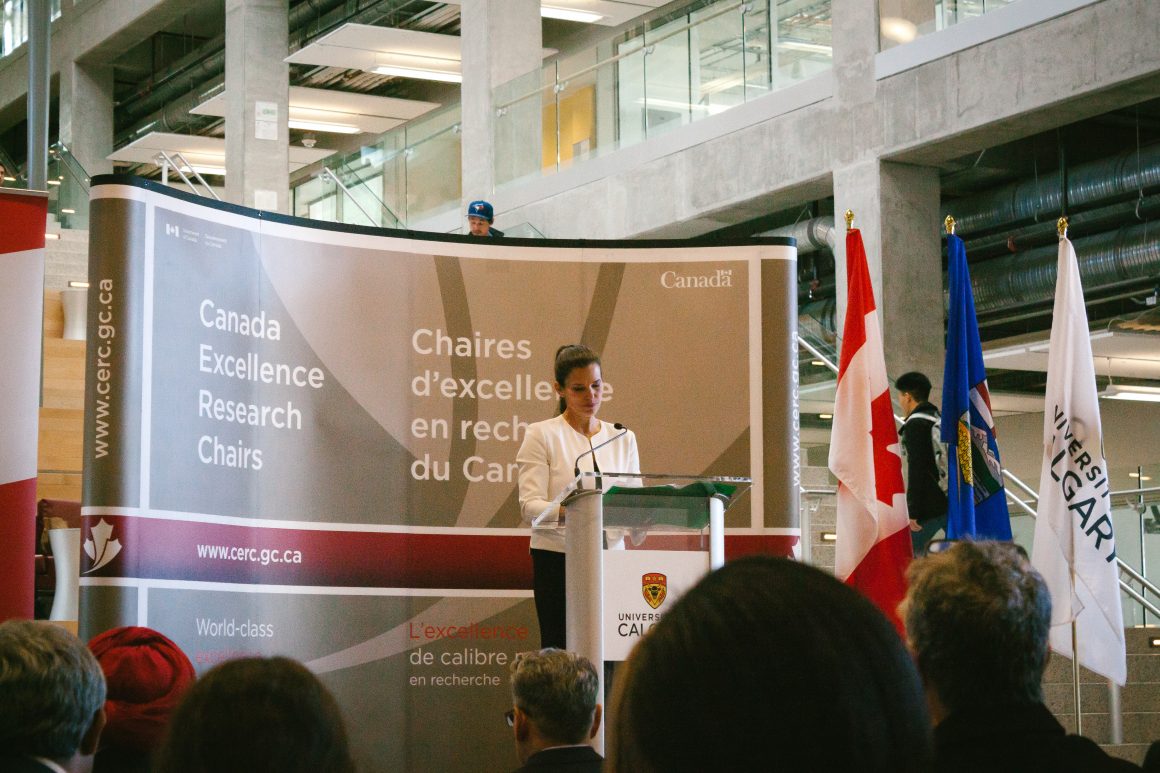
Federal government announces competition for 11 Canada Excellence Research Chairs
By Scott Strasser, October 13 2016 —
Eleven new Canada Excellence Research Chair (CERC) positions are up for grabs and the University of Calgary plans to apply.
Federal Minister of Science Kirsty Duncan announced a new competition for CERCs that Canadian universities can apply for. The announcement came at an official ceremony at the U of C on Oct. 12.
CERCs are senior professorships granted to internationally renowned scientists in their respective fields. The goal of the CERC program — which awards scientists and their teams up to $10 million over seven years — is to bring the best scientific talent to Canadian universities.
“This is about attracting the best and brightest to Canada,” Duncan said at the launch. “That’s why we have these research programs. It’s about building a research hub in Canada, it’s about training the next generation of scholars and it’s about building partnerships.”
While there are currently 27 CERCs at 17 universities across Canada, only one is held by a woman. Luda Diatchenko at McGill University is the Chairholder for Human Pain Genetics.
In a bid to increase diversity, the new competition will include equity criteria for applicants.
According to the Canadian government, universities that apply for the new Chairs will need to prove they have a “detailed equity plan and recruitment strategy to promote the participation of women and other underrepresented groups.”
Duncan said the new competition will address the CERC program’s current gender imbalance.
“When you add women to science, when you add diversity, you change the conversation,” Duncan said. “We’re incredibly proud of the 27 CERCs we have. However, only one is a woman.”
The U of C currently has one CERC — Schulich School of Engineering professor Steven Bryant — who is the Chairholder in Materials Engineering for Unconventional Oil Reservoirs.
Bryant arrived at the U of C in 2014. Since then, he has led a team of researchers devoted to finding new ways to use nanoscale technology to improve in-situ oil recovery in the oilsands.
“Once you have a CERC, you are obviously doing world class research and you’re attracting world class talent,” U of C president Elizabeth Cannon said. “Having people like Steven Bryant and being successful in [Canada First Research Excellence Fund] competitions is absolutely what we need to be doing.”
Cannon said the U of C will “absolutely” apply for the new CERCs. She said the U of C can submit a maximum of two nominations.
“We’ll be aligning our nominations with our priority areas. We’ll be looking at those and there will be an internal process to determine which nominations we’ll put forward,” Cannon said.
The CERC program launched in 2008. The first cohort of Chairholders was announced in 2010.
